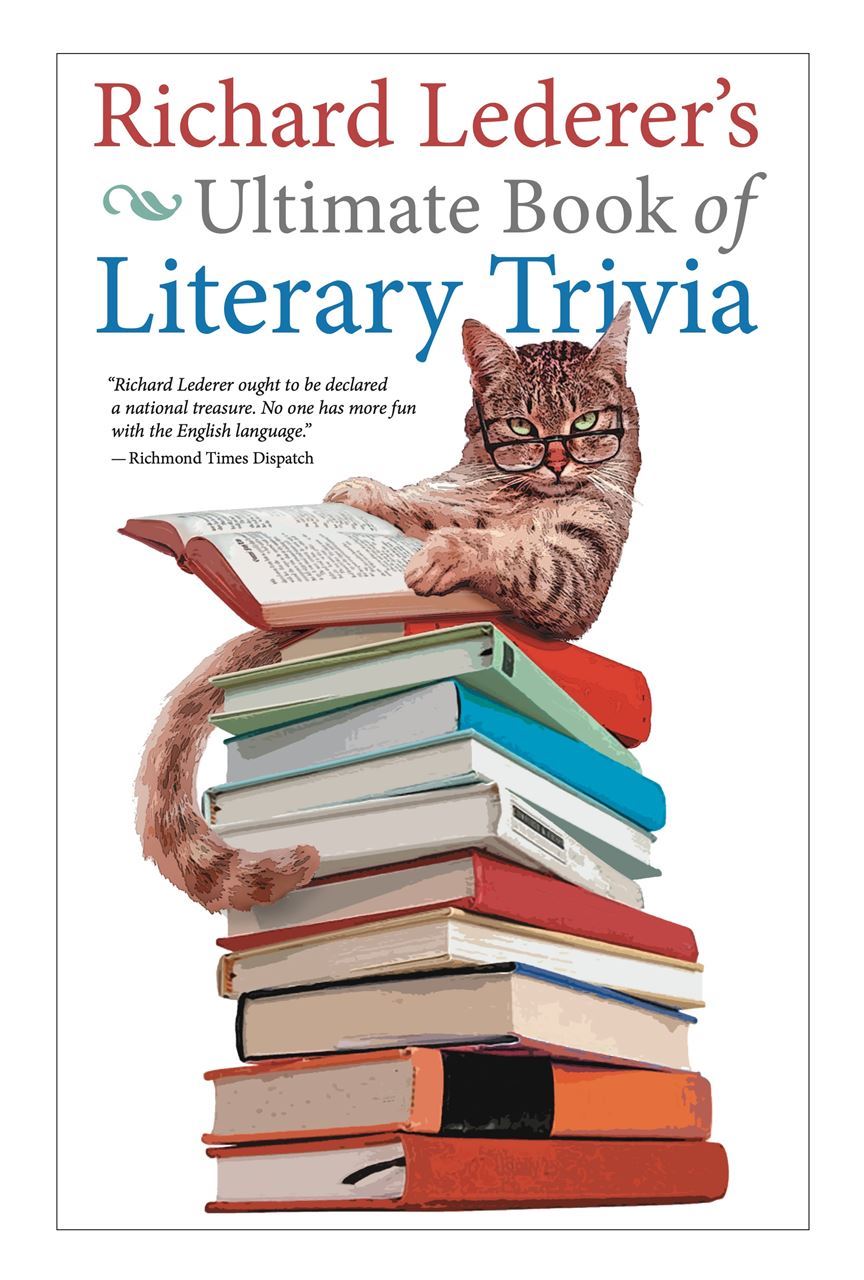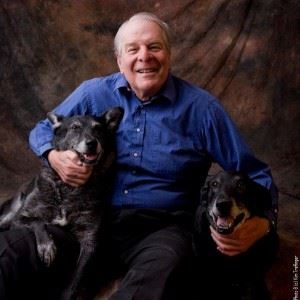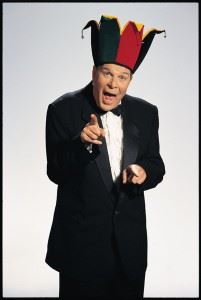
 San Diego Writer's Guild Life Member and Odin Award Winner Richard Lederer announces that his new book Richard Lederer's Ultimate Book of Literary Trivia (Waterside Productions) will be published on July 15.
San Diego Writer's Guild Life Member and Odin Award Winner Richard Lederer announces that his new book Richard Lederer's Ultimate Book of Literary Trivia (Waterside Productions) will be published on July 15.
- What fictional detective survived an attempted murder by his creator?
- Whose gravestone bears the inscription "The reports of my death are greatly exaggerated"?
- Who was the single mother, living on state benefits, whose series of fantastic novels made her the richest writer in England?
Richard Lederer's Ultimate Book of Literary Trivia lives up to its title by offering a treasure chest of amazing facts, curiosities, and quizzes about your favorite authors and their works. Looking back at the Bible, mythology, and Shakespeare and moving up to a library of contemporary writers. Literary Trivia promises bright days of entertainment and enlightenment for the passionate book lover.
Answers: Sherlock Holmes, Mark Twain, J.K. Rowling.

Richard Lederer - in his own words
Not long ago, I visited a nearby progressive elementary school and chatted for about forty-five minutes with the sixth graders about the joys of language and the writing life. One of the boys in the class asked me, “Dr. Lederer, where do you get your ideas for your books?”

Ever since I became a writer, I had found that question the most difficult to answer and had only recently come up with an analogy that I thought would satisfy both my audience and me. Pouncing on the opportunity to unveil my spanking new explanation, I countered with, “Where does the spider get its web?”
The idea, of course, was that the spider is not aware how it spins out its intricate and beautiful patterns with the silky material that is simply a natural part of itself. Asking a writer to account for the genesis of his or her ideas is as futile as asking a spider the source of its web and method of its construction. The young man, in response to my question, appeared thoughtful for a moment. Then he looked me squarely in the eye and shot right back, “The spider gets its web from its butt!”
I checked out the boy’s assertion, and, sure enough, spiders do produce their silk from glands located in their posteriors. The glands open through tiny spinnerets located at the hind end of the abdomen. Well, it may be that for lo these many years I’ve been talking and writing through my butt, but that doesn’t stop me from being an unrepentant verbivore.
I was the kind of child who, almost as soon as he could talk, saw a butterfly and cooed, “Oh, goody. A butterfly will flutter by.” Even as a high-school student, I knew that Elvis Presley, born three years before me, would become immortal because I saw that “Elvis Lives” is a two-word anagram.Still, I entered Haverford College as a pre-medical student but soon found that I was reading the chemistry books for their literary value. I became an English major and then attended Harvard Law School, where I found that I read the law cases for their literary value. So rather than fighting my verbivorous instincts, I switched into a Masters of Arts and Teaching program at Harvard. That led to a position at St. Paul’s School, in Concord, NH, where I taught English and media for 27 wonderful years. I would have gladly served them all their days, but my earning a Ph.D. in English and Linguistics from the University of New Hampshire inspired me to write my books on language. The enthusiastic popular response to these books, beginning with Anguished English, gave me the opportunity to leave the St. Paul’s community to extend my mission of teachership.
That’s what I do now, as a fly-by-the-roof-of-the-mouth user- friendly English teacher, Wizard of Idiom, Attila the Pun, and Conan the Grammarian.

More than a million of my books have been sold, most with Pocket Books, Bantam Doubleday Dell, St. Martin’s Press, Gibbs Smith, and Marion Street Press. My books have been Book-of-the-Month Club and Literary Guild alternate selections, and my work has appeared in the New York Times, Sports Illustrated, AARP, National Review, and Reader’s Digest. I have appeared in the likes of Plexus, The Toastmaster, Farmers’ Almanac, Mensa Bulletin, Language, Annals of Improbable Research, Word Ways: The Journal of Recreational Linguistics, and Journal of Court Reporters.
As a San Diegan, I am button-burstingly proud to announce that my column, “Lederer on Language,” appears weekly in the San Diego Union-Tribune.
I have broadcast regularly on a number of major market public and clear-channel commercial radio stations, including KPBS in San Diego and KSFO in San Francisco. I have appeared a number of times on just about every major radio station in the U.S., including Larry King radio, the Osgood Files, G. Gordon Liddy, Tom Snyder, Roy Leonard, Dave Maynard, David Brudnoy, and Jordan Rich, and television shows, such as the Today Show, and CNN Prime Time. I have been elected International Punster of the Year and Toastmasters International’s Golden Gavel by Toastmasters International winner.
For those organizations that need a brief biography about me for an introduction, please go to the statement I have prepared under the Public Speaking tab.
Visit Richard's website at verbivore.com
